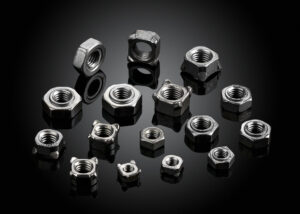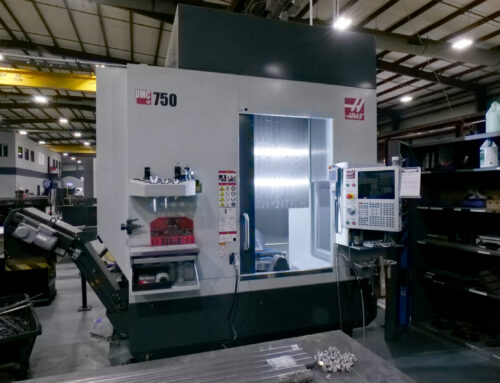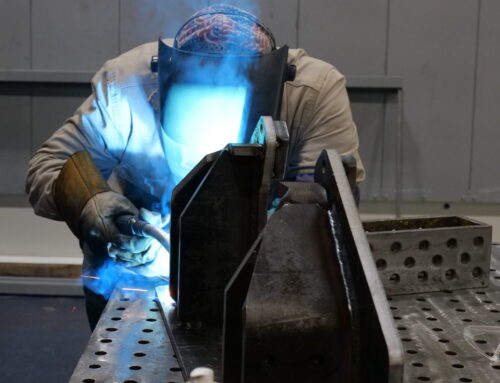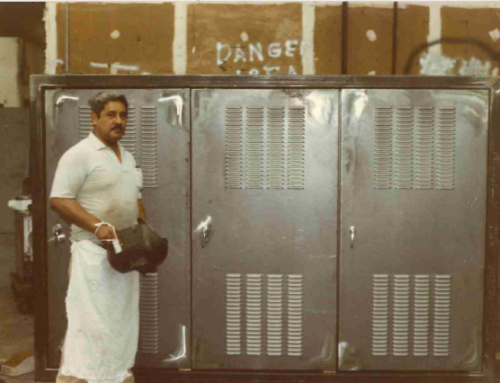Hinges, handles, locking mechanisms, bolts, rivet nuts, PEM nuts, weld nuts…
There are many different types of hardware used in sheet metal parts, and making the right selection at the beginning of your project is important. Failing to specify your desired hardware or requesting hardware that isn’t suitable for your project can delay lead times or—even worse—result in sheet metal parts that don’t function as intended.
Here are some best practices and considerations to keep in mind when selecting hardware.
Tip #1: Be Specific about Hardware
 You might be surprised to learn just how many hardware types and materials there are. If you’re not specific about your requirements up front, you could end up with a grade 5 zinc bolt when you actually wanted grade 8 or a 304 stainless steel bolt when 308 stainless steel would have been better.
You might be surprised to learn just how many hardware types and materials there are. If you’re not specific about your requirements up front, you could end up with a grade 5 zinc bolt when you actually wanted grade 8 or a 304 stainless steel bolt when 308 stainless steel would have been better.
Ameritex’s goal is always to get you exactly what you need, and we can only do that when you’re as specific as possible about everything—including hardware. If you are not sure what hardware to choose, contact our team and we can assist in ensuring which design hardware will best fit your product and execute exceptional functionality.
Tip #2: Select Standard Hardware
We’re happy to machine custom hardware for your sheet metal parts using our in-house CNC machining capabilities. However, if standard hardware is sufficient, that’s your best bet. Why? Standard hardware is typically more cost-effective, and easier to replicate or replace if something goes wrong during the hardware insertion process.
Considerations for Hardware Selection
Consider these factors when choosing the hardware.
1. Location
Imagine putting together a desk and the holes don’t match up, or screw placement that affect the functionality of latches, door frames, or hinges.
2. Strength
The strength and structural support your application requires play an important role in the hardware you select. For instance, if you have a big and heavy sheet metal part, you’ll want to use manually inserted hardware like rivet nuts or weld nuts over PEM nuts.
We recommend weld nuts when customers need the strongest and most reliable hardware option available. Welding hardware into place ensures exceptional durability for big and heavy parts as well as longevity of the product.
3. Material
Your product’s end-use application can help determine the ideal hardware material. Plastic hardware may be sufficient for a small and lightweight indoor application. On the other hand, if your part will be outdoors and subjected to the elements, you’ll probably do better with a corrosion-resistant material.
Ameritex Is Happy to Help with Hardware Selection
If you have questions about hardware selection or aren’t sure which hardware is best for your sheet metal part, Ameritex is here to help. We simply ask that you start a discussion with us before we begin fabrication so that we can prevent delays and get you the exact parts you need.




